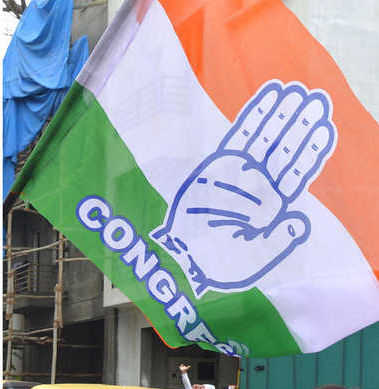
Aditi Tandon
New Delhi, September 25
Ahead of the Congress presidential elections, veterans hope consensus will prevail again as it has for the better part of the party’s 137-year-long history that saw only four contests for the top post.
Four major contests so far
1939: Subhas Chandra Bose beat Pattabhi Sitaramayya
1950: PD Tandon defeated JB Kripalani
1997: Sitaram Kesri trumped Sharad Pawar and Rajesh Pilot for the post
2000: Sonia Gandhi defeated Jitendra Prasad
Congress general secretary (communications) Jairam Ramesh today batted for consensus in the election to the post of the Congress president, taking forward a tradition several organisational stalwarts, notably former President Pranab Mukherjee and long-time AICC general secretary (organisation) Janardan Dwivedi nurtured.
Dwivedi articulated the line that “consensus is the best form of election”.
Earlier, Mukherjee championed the need for a consensus to the top Congress post and famously tried to forge an intra-party agreement for Sitaram Kesri who eventually defeated Sharad Pawar and Rajesh Pilot in only the third major election held for the presidential post in the Congress’ history.
Mukherjee even records in his memoirs, “Certain offices should not be sought. They should be offered. Congress presidency is one such office. The old practice of inviting an eminent person to preside over the annual session of the Congress and that person holding office till the next annual session was truly remarkable. My efforts were always focused at having a unanimously chosen or a consensus candidate for the office of Congress president. That is what prompted me to work for a consensus in favour of Kesri, failing which I supported him.”
The tradition of consensus candidates in the Congress is rooted in awkward situations that arose in the event of poll.
In 1950, Purushottam Das Tandon, considered close to Sardar Vallabhbhai Patel defeated then PM Jawaharlal Nehru’s candidate JB Kripalani.
Kripalani resigned from the Congress to form the Kisan Mazdoor Praja Party. Tandon had to later quit as the Congress president due to differences with Nehru, who was requested to assume the party presidency. Nehru held the post of PM as well as the Congress chief from 1951 to 1955. Because Nehru favoured ‘one person, one post’ dictum, UN Dhebar succeeded Nehru as the party chief.
Even earlier than 1950, an awkward situation arose when Subhas Chandra Bose defeated Mahatma Gandhi’s candidate Pattabhi Sitaramayya in the Congress presidential election of 1939. The relationship between Gandhi and Bose soured in late 1930s with the larger section of the Congress eventually seeking a consensus candidate for the top post to sidestep divisions.
Join Whatsapp Channel of The Tribune for latest updates.




























